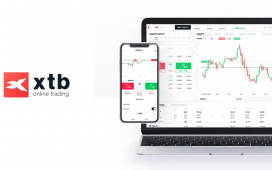Despite being a late player to the game, TikTok Shop has quickly amassed shoppers.
The U.S. operation of TikTok Shop launched in 2023, and has attracted 47 million shoppers to the platform, who spend on average $32 million every day, according to Capital One Shopping. The social media-based marketplace combines the ultra-cheap price points of Temu with in-app social shopping, similar to Instagram and Facebook.
It added an estimated 11.9 million U.S. buyers in 2024 alone, placing it ahead of competitors like Meta and Pinterest in the same period, according to Emarketer.
“All these companies should be real nervous because TikTok Shop starts from this huge strength of customer retention,” said Jason Goldberg, chief commerce strategy officer at Publicis Groupe, a marketing firm.
Unlike other social shopping experiences, TikTok Shop keeps buyers in its app. Others, like Instagram, take shoppers to external websites to complete purchases.
Additionally, TikTok uses its algorithm to suggest products the same way it recommends content – it shows users advertisements based on their engagement habits, not just shopping habits.
“Every time you look at something, every time you pause on something, every time you click or swipe on something, that’s cutting code in the background on this algorithm and making it smarter,” said Richard Crone, founder of Crone Consulting, an e-commerce firm.
Retail experts coin this marriage of shopping and entertainment as ‘shoppertainment.’ It’s a category of e-commerce that has spawned entirely new careers for social media influencers like Lexi Rosenstein.
“People don’t realize that you can have 5,000 followers and monetize your content on TikTok and TikTok Shop and make this a career,” Rosenstein said.
As a TikTok affiliate, Rosenstein has amassed more than 70,000 followers and is the top U.S. seller for beauty products in the app. She attributes her large following to the growth of live shopping on TikTok.
And yet, TikTok Shop is at risk of disappearing.
Congress in April 2024 passed a law requiring China’s ByteDance to sell TikTok’s U.S. operations to an American company or face an effective ban of the app stateside. The concerns are that TikTok is a national security threat due to its ties to China, accusations that TikTok denies. The app briefly went down for a few hours ahead of the law’s initial deadline in January, but TikTok was given a 75-day extension by President Donald Trump through an executive order. ByteDance has until April 5 to find a U.S. buyer.
As of the writing of this article, no buyer has been announced.
Watch the video above to learn more about the rise of TikTok Shop, the businesses that depend on it, and what an impending ban could mean for the app.










